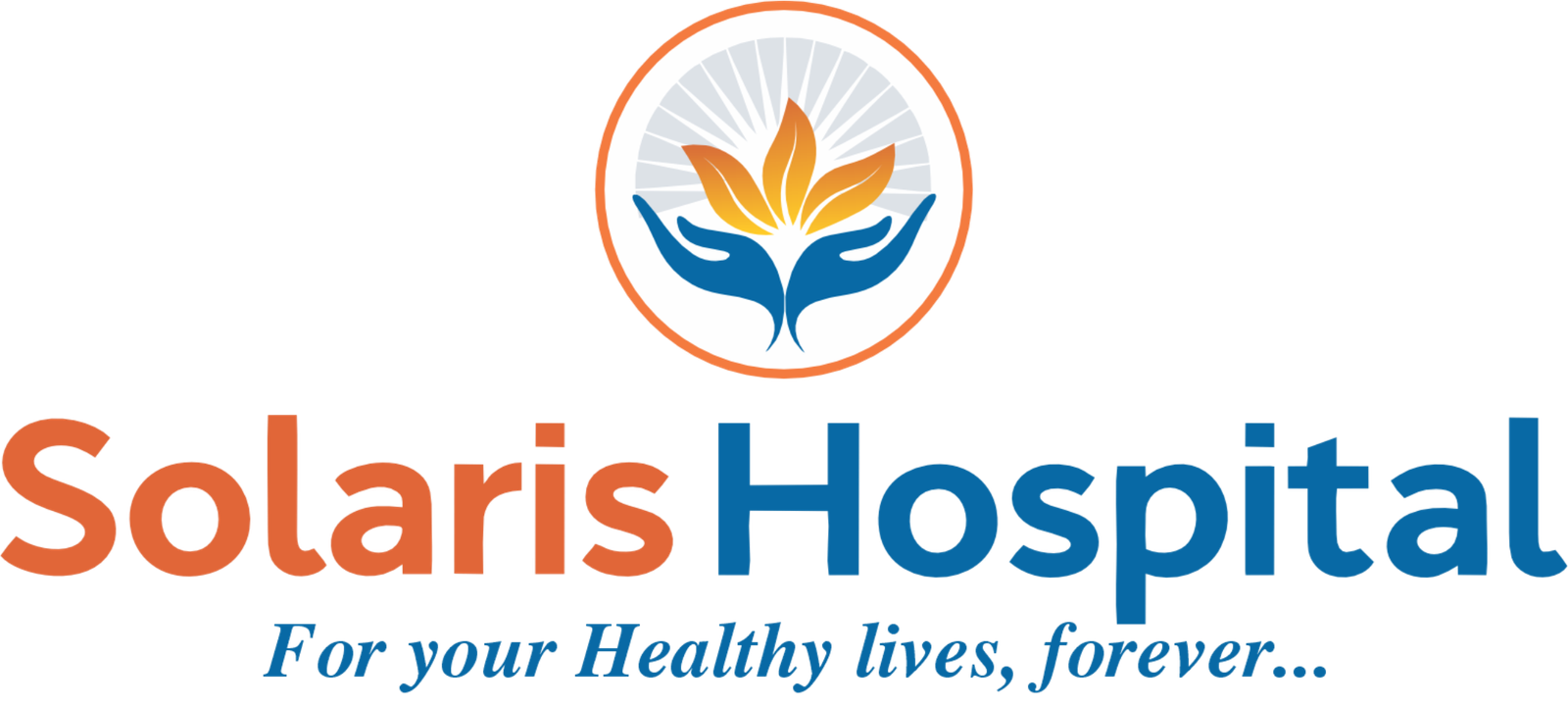Cancer is one of the leading health challenges for women across the world. With increasing awareness and access to regular screening, many cancers can now be detected early and successfully treated.
The most common cancer in women is breast cancer, followed by cervical cancer and ovarian cancer.
Understanding these cancers, their warning signs, risk factors, and preventive measures helps women make informed health choices. At Solaris Hospital, Thane, our oncology team focuses on awareness, early detection, and personalised treatment plans for every woman.

Breast cancer is the most frequently diagnosed cancer among women globally and in India. It occurs when abnormal cells in the breast multiply uncontrollably, forming a lump or tumour.
Key Facts
• Accounts for nearly one in eight cancers diagnosed in women
• Most common in women between 40 and 60 years of age
• Early detection can increase the survival rate to over 90 percent
Common Symptoms
• Lump or thickening in the breast or underarm
• Change in breast size, shape, or texture
• Nipple discharge, especially blood-stained
• Inverted nipple or skin irritation around it
• Persistent pain in the breast or armpit
Prevention and Screening
• Perform a monthly breast self-exam after each menstrual cycle
• Schedule a yearly clinical breast exam with your doctor
• Women above 40 should undergo mammography every 1–2 years
• Maintain a healthy weight and active lifestyle
• Avoid smoking, limit alcohol, and breastfeed if possible
Risk Factors
| Modifiable | Non-Modifiable |
|---|---|
| Obesity and sedentary lifestyle | Family history of breast cancer |
| Hormonal therapy or long-term oral contraceptive use | Age above 40 years |
| Smoking and alcohol use | Early menstruation or late menopause |
| Lack of breastfeeding | Genetic mutations like BRCA1 and BRCA2 |
Cervical cancer is the second most common cancer in Indian women. It affects the cells of the cervix, the lower part of the uterus. It develops slowly and is almost always linked to the Human Papillomavirus (HPV) infection.
Common Symptoms
• Abnormal vaginal bleeding (after intercourse or between periods)
• Pelvic pain or discomfort
• Foul-smelling or watery vaginal discharge
• Pain during sexual intercourse
Risk Factors
• Persistent HPV infection
• Multiple sexual partners
• Early onset of sexual activity
• Smoking and poor genital hygiene
• Weak immune system
Prevention and Screening
• HPV vaccination for girls and women between 9–26 years
• Regular Pap smear tests every 3 years for women over 25
• Avoid smoking and maintain good genital hygiene
• Practice safe sex and limit sexual partners
Early screening can detect precancerous changes in the cervix long before they become cancerous.
Ovarian cancer affects the ovaries, which are responsible for producing eggs and hormones like estrogen and progesterone. It is often called a “silent killer” because symptoms are vague and may appear only in the later stages.
Common Symptoms
• Bloating or abdominal swelling
• Pelvic or lower abdominal pain
• Difficulty eating or feeling full quickly
• Frequent urination or constipation
• Unexplained weight loss or fatigue
Prevention and Screening
• Regular gynaecological check-ups
• A pelvic ultrasound if you have a family history of cancer
• Genetic counselling and testing for high-risk women
• Oral contraceptives (under medical guidance) can lower the risk
• Maintain a healthy diet and exercise routine
Risk Factors
| Modifiable | Non-Modifiable |
|---|---|
| Obesity | Family history of ovarian or breast cancer |
| Use of fertility drugs without supervision | Age above 50 years |
| Long-term hormone replacement therapy | BRCA1 or BRCA2 gene mutations |
| Lack of childbirth or breastfeeding | Endometriosis |
| Type | Key Facts | Prevention |
|---|---|---|
| Endometrial (Uterine) Cancer | Common after menopause | Maintain healthy weight, treat hormonal imbalance |
| Lung Cancer | Increasing among women who smoke or inhale second-hand smoke | Quit smoking, avoid air pollution |
| Colorectal Cancer | Linked to poor diet and inactivity | Eat high-fibre foods, get regular colon screenings |
| Skin Cancer | Related to UV exposure | Use sunscreen and limit sun exposure |
Cancer detected in its early stage is often treatable and curable. Regular check-ups, self-exams, and awareness of symptoms are the first steps in saving lives.
Early detection methods include:
• Pap smear and HPV testing for cervical cancer
• Mammography for breast cancer
• Pelvic ultrasound or CT scan for ovarian evaluation
• Blood tests (CA-125, BRCA gene testing) for high-risk patients
At Solaris Hospital Thane, our team uses advanced diagnostic tools and screening programs to ensure early detection and timely intervention.
The most common cancer in women is breast cancer, followed by cervical and ovarian cancers. The good news is that most of these cancers are preventable and curable when detected early.
Regular screenings, healthy lifestyle choices, and prompt consultation with a specialist can make a life-saving difference.
If you notice any unusual symptoms or wish to undergo cancer screening, visit Solaris Hospital, Our oncology experts provide advanced, compassionate care to help every woman lead a healthier, cancer-free life.
Service Road, Ghodbunder Rd, next to AP Shah Institute of Technology, Kasarvadavali, Thane West, Maharashtra 400615
Pioneering Excellence in Neurology and Neurosurgery with Cutting-Edge Technology and Compassionate Care. Solaris Hospital is your one-stop destination for comprehensive with wide range of multi-specialty services.
Service Road, Ghodbunder Rd,
next to AP Shah Institute of
Technology, Kasarvadavali,
Thane (West),
Maharashtra. 400615
Phone:+91 22 4004 4001 / 4004 4003 / 8655696500
E-mail:contact@solarishospitals.com
